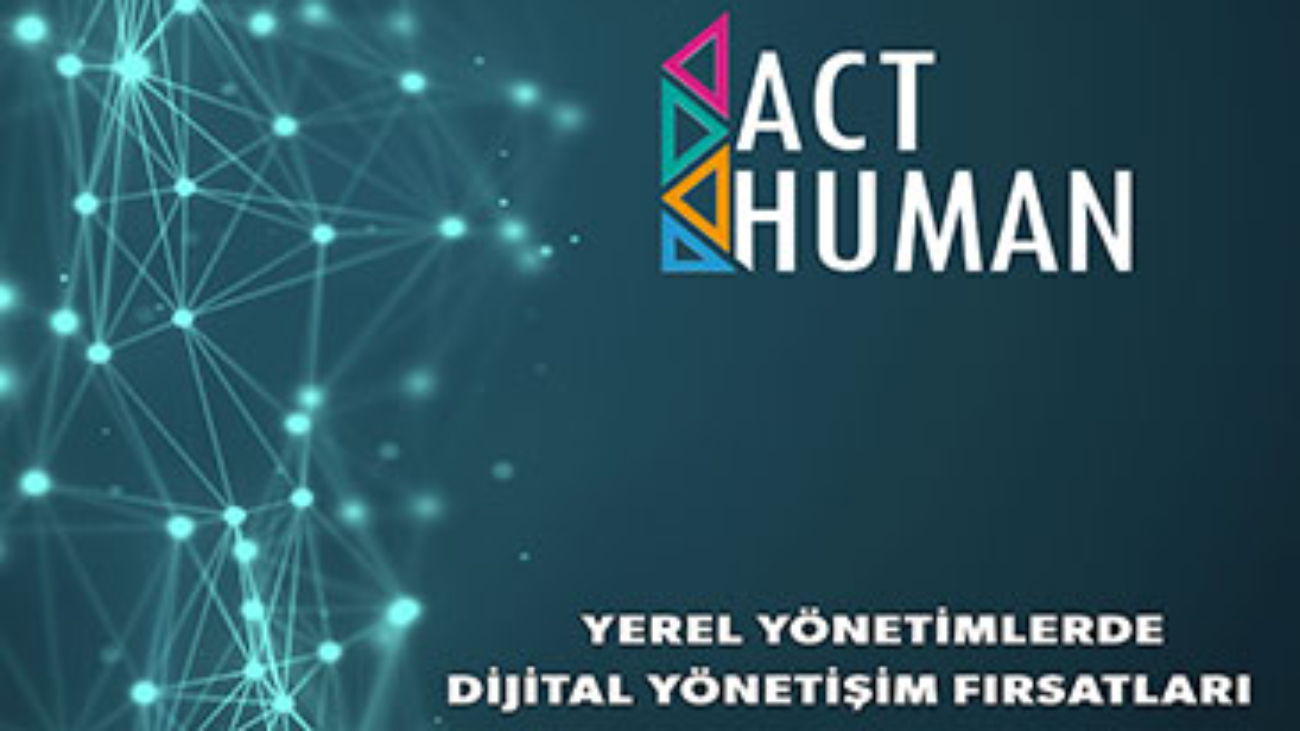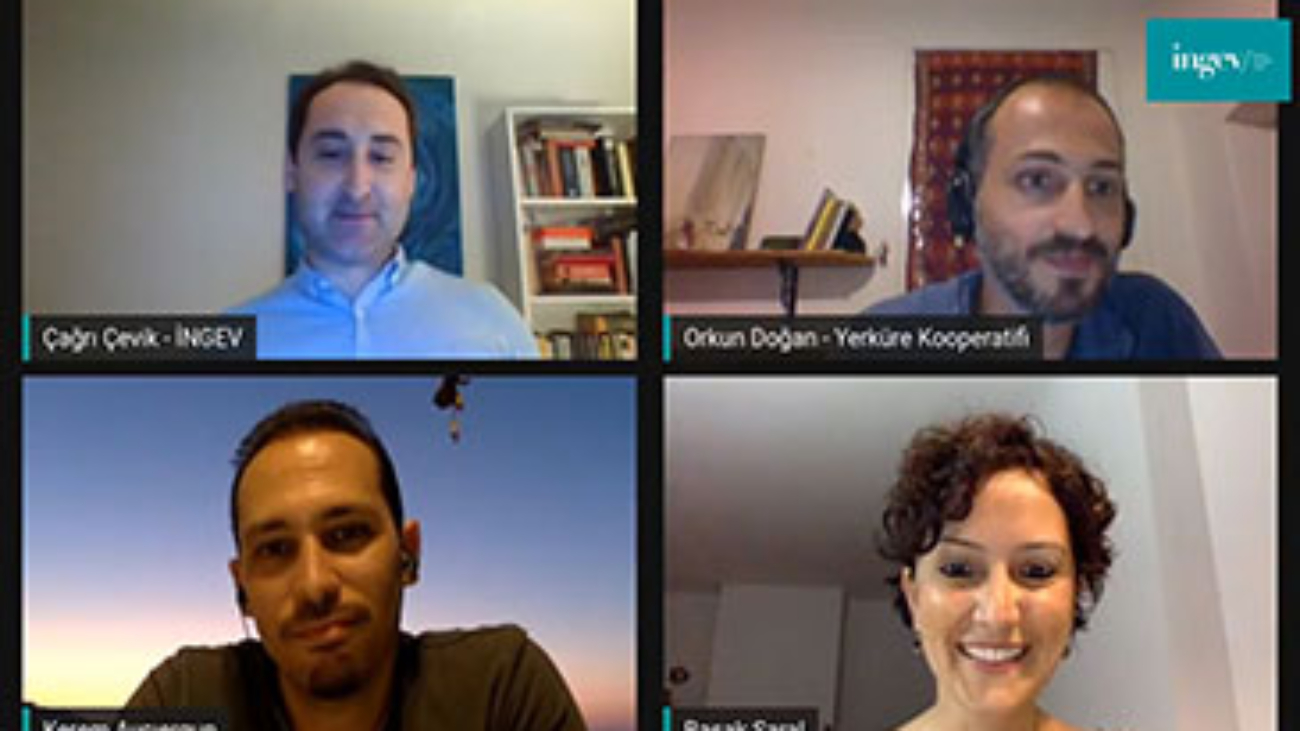It is our hope that the corona virus pandemic has entered a downward trend in Turkey and the world alike. I’d like to call this episode the transition to the post-Corona period. This is an interim phase where we will have to make progress on various fronts. A time of social mobilization awaits us.
A Solidarity Map for Individuals with Disabilities; abledturkey.com*
Disabled individuals are one of the most vulnerable groups of the society, and no matter how valuable both the academic and practical studies conducted on this subject are, it can be possible to transform it into a systematics and record it, only by way of mapping or creating a database.
At this very point, INGEV in cooperation with Relief International launched an online map involving more than 100 organizations that deliver support in a wide range of specialties for people with disabilities across Istanbul.
The map includes the organisations offering support in employment, entrepreneurship and healthcare, by their specialities in a detailed way, so that the services delivered to the individuals with disabilities can be fulfilled in an holistic manner. While Abledturkey.com shows the disabled people what services they can get and where they can get these services, it also allows the organizations to get informed of each other.
The “online” map, which also lists the organisations rendering services to the refugees and disabled refugees in Istanbul, home to over half a million Syrian refugees, is available in Turkish, Arabic and English language versions.
To access the online map: www.abledturkey.com

* This map application is released with a view to serving the people with disabilities within the scope of the project “Improving Access to Livelihood Opportunities for Refugees with Disabilities” carried out with the support of PRM and in cooperation with Relief International and INGEV.
Digital Governance Opportunities for the Municipalities
The report “Digital Governance Opportunities for Local Administrations” prepared by INGEV in cooperation with IPC and University of Oxford is published. The report probes into a topic that has become of vital importance upon the outbreak of Corona virus pandemic. INGEV President Vural Cakir addresses these opportunities, in the preface he drafted, as follows:
The Corona epidemic showed how critical it is to position the relationship of the municipality and residents on a platform that will run on a two-way digital platform and is supported by algorithms. It is necessary to adopt platforms that operate between the digital citizen groups created either on the basis of neighborhoods or streets and municipal administrations.
Municipalities have to work, take decisions in cooperation with a number of public offices and ensure coordination in terms of implementation. Digital transformation can also create opportunities to radically change the process. The pandemic we confront has showed the need for establishing the rules to build and operate the coordination networks.
It is now time to speed up for the creation of networks that bring the municipalities and NGO administrations together digitally on the basis of larger cities or towns, and owns their own expertise, operating systems and action rules.
For your questions and inquiries about the report: berk.coker@ingev.org
Our Digital Supports Increasing
INGEV Digital Support Center (DDM) started its operations. The activities led by Kamal Bakour are executed in three languages: Turkish, Arabic and English. The supports provided include, among others, website building and development, content creation and development, graphic designs, social media setup and management. The main target group of the activities, which are deemed as a follow-up of INGEV’s entrepreneurship supports, is the small and medium sized businesses and “start-ups”.
Full Support for Employment and Entrepreneurship Despite the Pandemic
INGEV, one of the most important addresses in Refugee entrepreneurship in Turkey, continues to be the main point of access for the Syrians SMEs and Business representatives, thanks to the entrepreneurship activities it has performed for over 1.5 years within INGEVGDM.
While we provide the refugee entrepreneurs with consultation services in the fields of company establishment (corporation), business development, finance and law, business as part of the project implemented in cooperation with UNDP, we also further expand the scope of the project by meeting the needs of Syrians for work permit under Temporary Protection.
As of April 2020, 53 entrepreneurs were provided with company establishment support; 220 Syrian SMEs and entrepreneurs were provided consultation assistance by means of personal experts, and more than 400 Syrians under Temporary Protection were provided with support for work permit application.
The scope of the project, which will continue until February 2021, was expanded with the support received from the expertise of the partner institution United Work, in terms of job placement and work permits. We also focus on the digitalization of the companies, which has become critical in the period of Corona Virus Pandemic, by aiming to help the Syrian entrepreneurs and SMEs to survive this period with the least amount of loss and to focus back on growth and work on employment creation process.
INGEV CHATS Reached More Than 1 Million People
While the Corona Virus Pandemic is still effective worldwide, we continue to jazz up the life in isolation with knowledge-based conversations. While the value of digitalization has further increased in this period, we have begun to introduce various experts, academics and journalists, all specialists in their fields, to our social media followers via “INGEV CHATS”, a chat program published regularly on INGEV’s Facebook page. Assoc. Prof. Dr. Erkan Saka, Rashid Hamwi, Burcin Buke, Tugrul Eryilmaz, Vural Cakir, Prof. Dr. Fuat Keyman, Prof. Dr. Halil Nalcaoglu and Salim Kadibesegil were the guests of April.
INGEV CHATS hosted Prof. Pınar Okyay, İbrahim Elbaşı, Duygu Eren, Ozan Sönmez, Şehnaz Tuna and Dr. Aylin Dağsalgüler in the month of May.
In the month of June and July, INGEV CHATS’ guests were Emine Erdem, Arda Kutsal, Murat Şahin, Prof. Dr. Fikret Adaman, Ayşe Sabuncu Saraçlar, Ezgi Arslan, Merve Batıkan, Levent Kahraman, Orkun Doğan, Başak Saral and Kerem Avcıergun. Within this two months, INGEV CHATS focused on topics such as The Digital state of Turkey, Entrepreneurship, SMEs, Priorities, Needs and Cooperativism, New Models, Trends.
You can visit the following links to watch the streams that are highly appreciated and each of which rolls out a new perspective. Please be advised that our live streams are in Turkish language.
Covid-19 Trend Charts from INGEV
At 9 pm each day since the beginning of April, basic indicators and trend charts are broadcasted in INGEV’s social media accounts soon after Ministry of Health publishes the official pandemic data for the day. In this way, the INGEV followers get a more detailed view of the daily changes.
In addition to the daily variation, the trend charts allow for easier monitoring and interpretation of how the pandemic progresses. The indicators examined are the ratio of the number of cases to the number of tests, the ratio of mortalities and recoveries to the numbers of cases to name a few. While, at the time of this bulletin, the number of cases found among those tested was at its lowest point, the rate of recovery exceeded 50 percent. We hope that we will get more promising figures in the very near future.
To follow Covid-19 Trend Data: http://ingev.org/korona-trend-verileri/
“Free but unreliable”: Research on Trust in Social Media
“Trust in Social Media” Research conducted by INGEV TAM in collaboration with Istanbul Bilgi University Faculty of Communication has been concluded. The most appropriate definition that can be attributed to social media is “free but unreliable”.
While 56% of society define social media as a “free news source”, 61% think that social media is “full of fake accounts”. The research also points to a “post-truth era” and the reality of an “echo chamber”; one third of the society trust the news on social media if it is compatible with their own opinions.
We also observe the low level of trust in media overall; those who say they trust the traditional and digital media as a source of information do not even reach 40%. However, traditional media tools are one step ahead of social media within Turkish society in terms of trust. This however mostly stems from lack of familiarity with digital tools prevalent in the lower income groups with limited internet access.
Only one out of every four people in Turkey is an “active” user in social media. The fact that the majority consists of passive users means a vocal minority sets the tone in the social media environment in Turkey. A significant majority of society uses social media to “get” and “verify” information.
To read the white paper written by Prof. Halil Nalçaoğlu.
For questions and information, please contact can.cakir@ingev.org
New Level in Our Entrepreneurship Supports
We place emphasis particularly on Entrepreneurship supports among the sources of livelihood. Vocational trainings that are provided without creating workforce competition, without resulting in making one person more advantageous compared to the other within the labour market, and with the basis of correct labour analyses are of great importance without doubt. Such projects conducted by also taking into account the perspective of employer demands provide contribution to the development of livelihood sources. Entrepreneurship is of particular significance in this regard. An enterprise started up correctly, ensured to live and develop may make contribution with a multiplier effect on both employment and economic growth. Thus, we care much about the entrepreneurship support programmes at İNGEV. We will be able to take important steps in regards to entrepreneurship and employment in the year 2020 through the cooperation we established with UNDP. We believe that the present businesses finding new sales channels and support of their digitalisation will provide significant contribution at short and medium terms to the employment of both Turkey citizens and the Syrians.
Sustainable Livelihood Sources for Disabled People
Within the context of İNGEV’s studies, strengthening the livelihood sources of particularly vulnerable society segments play a crucial role. People forced to leave their homes constitute the most vulnerable segments of society. People who were forced to leave everything behind with only a few things they could carry and to escape to a country they do not even speak the language of, with almost no money… In case these people are also disabled, the vulnerability even more aggravated. İNGEV initialised a project aiming for disabled Syrians to reach sustainable livelihood sources. In the project titled “Development of Means of Access of Disabled Refugees to Sources of Livelihood” coordinated by Relief International, the experience of İNGEV in the subject of livelihood sources will be used at maximum extent. Contribution of employers and companies interested in human resources to the project is of great importance.







